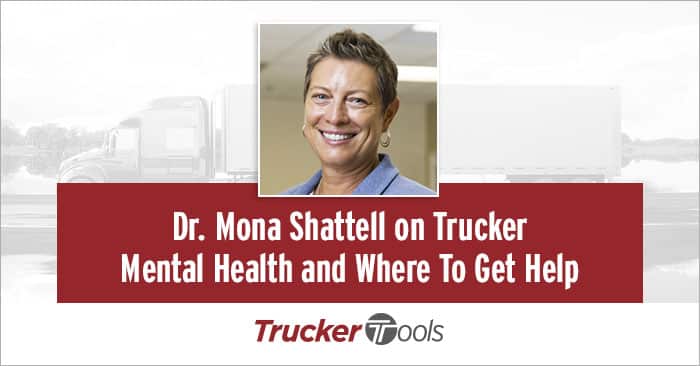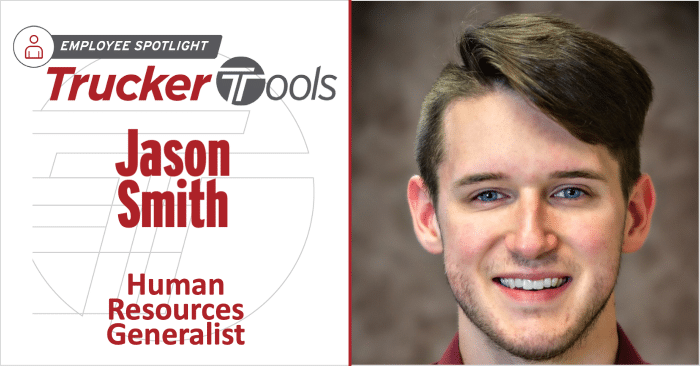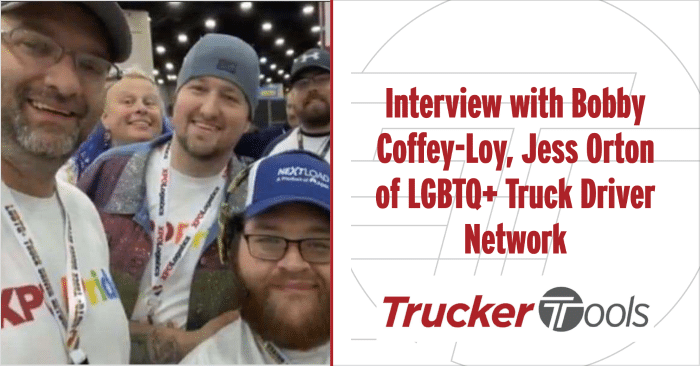Dr. Mona Shattell on Trucker Mental Health and Where To Get Help

Throughout the month of May in honor of Mental Health Awareness Month, we’re shining a spotlight on trucker mental health. The statistics around mental health in the industry are striking. In a study of more than 300 truckers between the ages of 23 and 76, 28 percent reported feeling lonely, 27 percent said they were depressed, and 20 percent said they dealt with chronic sleep disturbances. Truckers also are twice as likely to commit suicide and face high levels of job-related stress.
With this in mind, we recently spoke with Dr. Mona Shattell, who is the department chair, a professor and endowed chair at the University of Central Florida in the College of Nursing in Orlando. Dr. Shattell’s research on mental health in the trucking industry has been instrumental in raising awareness about the mental health challenges truckers face. We recently had the good fortune to speak with Dr. Shattell to learn more about her research and what the industry can do to better support truckers.
About Dr. Shattell and Why She Studies Mental Health in Trucking
“I’ve been a nurse for over 33 years and in academia for over 20 years,” Dr. Shattell said. “I got involved in research with truckers sort of accidentally. I was teaching at the University of North Carolina Greensboro and one of my colleagues in public health was working on an interesting study on truckers’ sexual health and substance abuse. The data from the research indicated that truckers have a lot of mental health concerns. I joined my colleagues on the project and since then I’ve been working with truckers and am interested in the population and how underserved they are.”
“I’ve been a nurse for over 33 years and in academia for over 20 years,” Dr. Shattell said. “I got involved in research with truckers sort of accidentally. I was teaching at the University of North Carolina Greensboro and one of my colleagues in public health was working on an interesting study on truckers’ sexual health and substance abuse. The data from the research indicated that truckers have a lot of mental health concerns. I joined my colleagues on the project and since then I’ve been working with truckers and am interested in the population and how underserved they are.”
According to Dr. Shattell, in the world of nursing there are only a couple of other researchers who study truckers and most of that research focuses on sleep and sleep disorders. Even though Dr. Shattell doesn’t have any truckers in her family or a close association with someone who is/was a trucker, she recognizes that truckers have unique needs and mental health concerns that aren’t necessarily being addressed, which has prompted her to lead several studies at Johns Hopkins University and UCF on trucker mental health.
Dr. Shattell’s Findings
“I was surprised by the level of depression and anxiety,” said Dr. Shattell. “It’s really higher than I expected to find in the population. Drug use also is higher with truckers.
As a four-wheeler, I get tired when I drive long distances and when I do, I want something like caffeine to keep me awake. Some of our findings do reflect that, but on the other hand driving rules are so strict that truckers have to stop when they still feel like driving and they may have to take something to help them sleep. Truckers report more cannabis use than I had anticipated because of this. When I first began looking at truckers, I was thinking about the family disruption and isolation of being away from family and missing events like birthdays and funerals. These are things that most of us take for granted.”
Another unexpected finding in Dr. Shattell’s research is that there’s a readjustment period for the family when drivers go home after being on the road for a while. Families get used to managing their households on their own and then the driver comes back and everyone has to readjust. Sometimes family members have to give truckers space to relax, even though they may want to try to catch up with the driver and do all the things they couldn’t do when the driver was away from home. It’s a balancing act for truckers and their families.
Mental Health Resources for Truckers
“I think now with technology, it’s a little easier to stay connected and that’s really important,” Dr. Shattell shared. “Social media can sometimes be harmful, but with truckers it can be helpful. There are lots of Facebook groups that are really supportive and where truckers are supporting other truckers. There’s much more telehealth and telemental health than there used to be and COVID was great for that. Providing services where truckers are, which is in the cab driving, is what we need to do. It’s nearly impossible for them to make appointments and to keep them because of their schedules. COVID also relaxed some of the regulations that prevented drivers from addressing their mental health. We need more services at truck stops, too.”
“I think now with technology, it’s a little easier to stay connected and that’s really important,” Dr. Shattell shared. “Social media can sometimes be harmful, but with truckers it can be helpful. There are lots of Facebook groups that are really supportive and where truckers are supporting other truckers. There’s much more telehealth and telemental health than there used to be and COVID was great for that. Providing services where truckers are, which is in the cab driving, is what we need to do. It’s nearly impossible for them to make appointments and to keep them because of their schedules. COVID also relaxed some of the regulations that prevented drivers from addressing their mental health. We need more services at truck stops, too.”
If you’re a trucker and you’re feeling lonely, depressed or anxious, Dr. Shattell recommends that you consider tele-therapy, reaching out to your primary care provider, or finding a therapist who provides video or telephone sessions. She also feels that reaching out to friends, family and colleagues can be super important, even though it’s often hard to do when you’re depressed or anxious. If you have a diagnosis of depression, you may benefit from medications that help you feel better and make it easier for you to reach out and connect with people. If you’re experiencing a mental health crisis, beginning in July you can dial 988 on your smart phone for the national hotline for suicide prevention. Until 988 is active in all states, you can call the National Suicide Prevention Lifeline at 1-800-273-8255 or text HOME to 741741.
What the Industry Can Do To Support Truckers
“I think that the industry as a whole doesn’t always serve drivers well,” said Dr. Shattell. “I mean, frankly, the drivers are regulated under the Department of Transportation instead of the Department of Labor. I’m sure that the industry doesn’t want drivers to be under the DOL because that would mean higher costs to them over time and paying truckers fair wages for the work that they do. The mental health of drivers is really important and I would hope the industry would do what they can. I’m hoping some of the regulations that have been relaxed during COVID will continue to be relaxed and changed permanently. There’s a stigma still with drivers in particular. If they’re on certain medications, they have to disclose that. There’s fear about that and there’s misunderstanding about that and yet medications are life-saving. A common problem in our society is that we make systemic problems an individual problem. We’ve been talking about things that individuals can do to help themselves, but it’s also the system.”
Read “10 Ways To Fight Fatigue, Reduce Stress and Boost Your Mood.”





